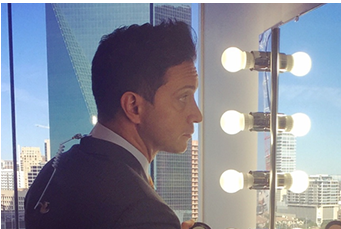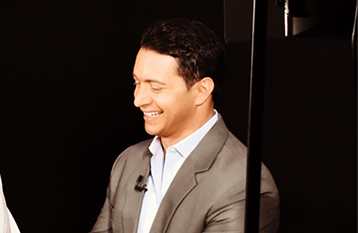| Written by Jared A Levy, Editor, Smart Investing Daily | |
| Friday, 25 March 2011 6:55 | |
 Yesterday was one of the most exciting days of my life. At 12:00 a.m. Thursday, my first book, titled Your Options Handbook, hit the shelves for sale around the world. It is the culmination of many years of work and observations. I’m not writing today to sell you a copy (although I certainly wouldn’t mind if you picked one up!), but rather to share some excerpts from one of the chapters with you. Yesterday was one of the most exciting days of my life. At 12:00 a.m. Thursday, my first book, titled Your Options Handbook, hit the shelves for sale around the world. It is the culmination of many years of work and observations. I’m not writing today to sell you a copy (although I certainly wouldn’t mind if you picked one up!), but rather to share some excerpts from one of the chapters with you.
Yesterday was also Harry Houdini’s birthday. Harry was a gifted and talented escape artist who defied death many times throughout his career. He was shackled in Chinese water torture cells, locked in steamer trunks and thrown into the ocean, and even buried alive! He survived all these amazing and dangerous escapes, but yet a relatively minor physical feat may have led to his untimely end. Harry’s death, caused by secondary infection and inflammation stemming from a ruptured appendix, was purportedly set in motion by a student, J. Gordon Whitehead, who delivered multiple punches in succession to Houdini’s stomach in Houdini’s dressing room. Houdini was known for his ability to be struck in the abdomen without feeling pain. You see, Harry had made this claim for years and had taken blows before without incident. He was caught off guard and didn’t have time to tighten his stomach muscles when Whitehead immediately began landing blows. In this weakened, unprepared state, those punches may have ended up costing Harry his life. How Does This Relate to the Financial Markets?In the stock market, we can find ourselves in weakened “mental states” for many reasons. Perhaps we had a string of losing trades and have lost a substantial amount of capital, which may make us not only vulnerable, but skittish, scared and desperate, all of which may cause us to make trading mistakes. With all that is going on around the world and the increased volatility out there, the only place we can exercise calm and control is with ourselves. To prevent trading mistakes, you must not only have a solid investment plan in place, but also make yourself aware of your “psychological capital.” Denise Shull, a prominent trading psychologist and coach, contributed a chapter in my options trading book on this subject. In the book, she notes: Psychological capital includes your technical knowledge of the stock market, but 99% of it is the net account balance of how you feel — energetic, clearheaded, and calmly confident. If that describes your state, you in effect have a psych cap account of a million dollars. If you don’t or haven’t slept well, haven’t eaten, or are angry at your teenager, your psych cap has been debited and your trading decisions will not be of the same quality that they could be. In short, you can think of psych cap as the state of mind and body when you truly and completely feel good. To relate the idea to something you might be familiar with, a synonym might be frame of mind. Here are a couple of exercises from my options trading book to keep your psych capital at its peak. Remember it’s all about having awareness and control over your emotions! (By the way, options trading doesn’t have to be complicated. Sign up for Smart Investing Daily and let me and my fellow editor Sara Nunnally simplify the stock market with our easy-to understand articles.) Psych Cap Exercise No. 1: Getting Clear-HeadedDefine your strategy — that is, a written, one-paragraph plan with a list of specific pieces of information and market events you will look for in order to know when you want to enter the market. After you have that list, write out (again, in one paragraph) what you are going to do to enter the market and next, and more importantly, what signals or events will tell you to exit the market. This exercise should be done on a Saturday or Sunday afternoon or a holiday. In other words, at some point when the financial markets are truly not open and you can’t be looking at the charts! What is the reason for this? You want to know it by heart and it is easy to fool yourself if you try to do this while you are simultaneously looking at the market. Write out in detail the objective signals and parameters you are looking for (soup to nuts). Now, let me point out (in case it isn’t clear) that this exercise actually requires that you work hard. It isn’t that easy. But think about it…if it were that easy then wouldn’t everyone be able to do it? You want to do not only the work that others won’t bother to do but also the kind of work that others don’t even know to do. After all, remember that they are focusing on analyzing the numbers while you are figuring out how to analyze the financial markets, other people’s perceptions and your own semiconscious biases. By getting the basic market stuff out of the way on the weekend, you can be focused on exploring all of your perceptions (explicit and conscious) while simultaneously remembering to put all of your decisions within the overt context of the foundation question: What will other people be likely to perceive when I want out of my trade? Remember, the key to being successful in the financial markets is not just knowing what “you believe” about the markets, but rather what the masses “perceive” is happening and how they will act. Psych Cap Exercise No. 4: Get a GripTry to get a handle on these feelings outside of investing or trading; that will make them much easier to recognize when you are under the influence of the stimulation of moving markets. All you are looking for is the footprint in your body/psyche of an intuitive feeling versus an impulsive or compulsive “I have to do something” feeling. The truth is that our psyches are actually very good at pattern recognition. Some would argue that in fact, pattern recognition defines intelligence. (Think about many of the problems in an IQ test; many are pattern matching.) Likewise, we have a tendency to see patterns in market data where none exist. I suggest that tendency takes us back to our aversion to uncertainty and our need to feel as if we are in control, or the behavioral gang’s “Illusion of Control.” Learning to differentiate the physical experience of intuition versus the physical experience of an impulsive (compulsive?) feeling gives you the objective you want to shoot for! TakeawaysIf you’re thinking that this psychological action doesn’t apply to investing and stock markets, think again. There are two primary — and some might say primal — emotions that drive markets: fear and greed. Being centered and calm and having a well-formed plan are crucial to investment portfolio management. Know your plan of attack and your strategy and write it down. If your strategy looks irrational on paper, it probably is! Go through the details of what you want out of an investment and what you believe the risks are. Remember that you DON’T have to make every trade. Know yourself, your tendencies and the emotions that are present in your life. If you are making investment decisions because of other factors, you are probably making a mistake. You may get lucky and make money, but in a weak emotional state, you may not be prepared if things go wrong. Editor’s Note: The results are in. On December 31, the WOW model portfolio showed subscribers how they could have racked up a cool $1 million. If that’s not enough, it just posted big winners of up to 171%, 204% and 311%… in January alone! To mark the occasion, we’re guaranteeing 200 “first responders” a special offer plus four free picks… Go here to get your free options picks. Article brought to you by Taipan Publishing Group. Additional valuable content can be syndicated via our News RSS feed. Republish without charge. Required: Author attribution, links back to original content or www.taipanpublishinggroup.com. Other Related Topics: Other Related Sources: |

Our suite of companies can address a multitude of needs from finance, trading, real estate, and risk management to digital marketing, branding, social, and media training.
Legal
Newsletter
Signup for my free no-spam newsletter






